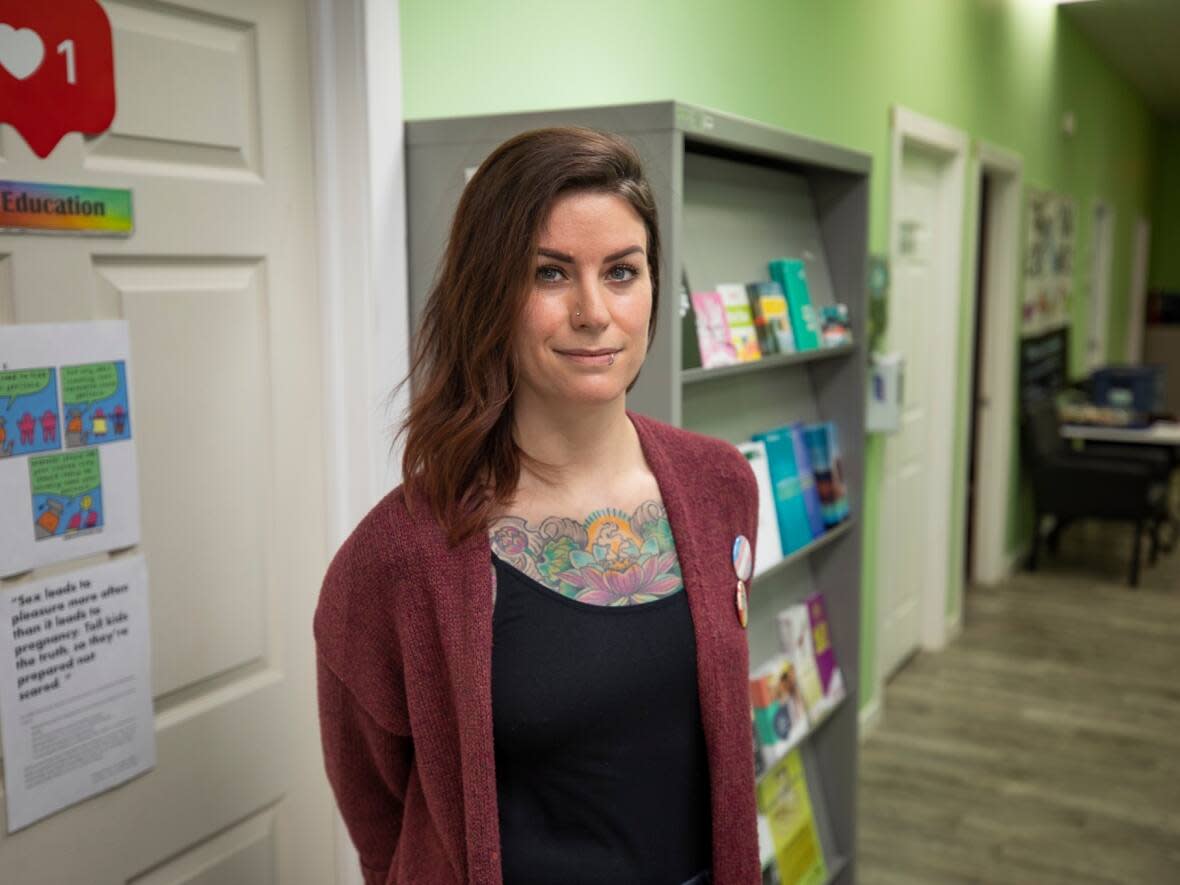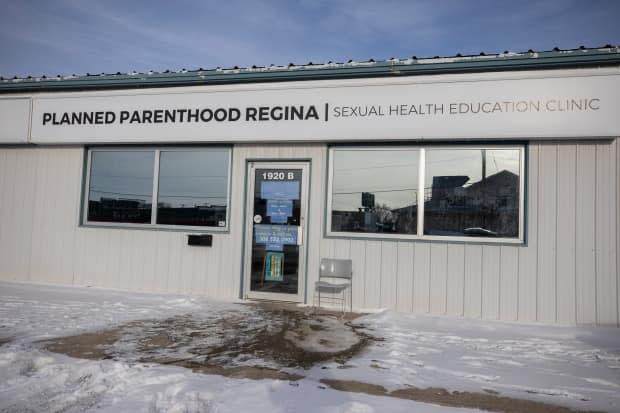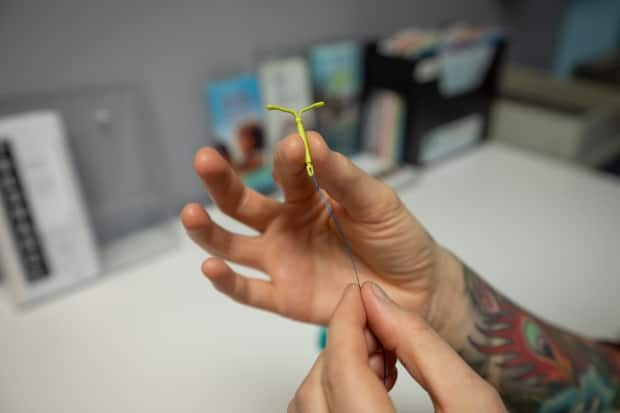Planned Parenthood Regina cannot keep up with demand during pandemic

The non-profit sexual health charity Planned Parenthood Regina has had to cut back appointments and services during the pandemic due to funding and staffing cuts despite growing demand from the public.
The clinic, which received at least 2,470 calls in the last few months, can't keep up with requests, and Taryn Wahl, the education coordinator, said she's concerned vulnerable people won't be able to access sexual health interventions.
"We do hear from some of the folks who end up going to the E.R. for issues related to sexual health and it shouldn't be that way," Wahl said.
Planned Parenthood provides accessible contraceptive and sexual health programs and services to the city and south Saskatchewan community with a priority focus on youth, LGBTQ+ and those without health insurance. People can access the sexual health clinic without a health card.
Consequences
Without early intervention or contraceptives, Wahl said the clinic may see even more calls regarding people having positive STI diagnosis or unplanned pregnancies.
And the organization is not alone.
The non-profit Saskatoon Sexual Health, which also provides sexual and reproductive health services, has faced similar demands.
The organization saw an 89 per cent increase in demand from April to October compared with the same period a year earlier, said Heather Hale, executive director of Saskatoon Sexual Health.
"We do know from experience that in times of public health or humanitarian crisis, sexual health or human reproductive health needs don't go down, they actually go up," Hale said.
"This has also been compounded by the increasing rates of STIs [sexually transmitted infections] in the province. So certainly that kind of exacerbates the challenges of meeting a need in a province where we face really poor outcomes directly related to sexual health."
Both said Saskatchewan has the highest provincial rate of HIV infections and chlamydia, the second-highest provincial rate of gonorrhea and high rates of syphilis. They added the province also has high provincial rates of adolescent pregnancy and one of the highest rates of sexual violence in Canada.
According to Statistics Canada, in 2019 Saskatchewan had more than double the national average of HIV diagnosis at 16.9 per 100,000 population.
Less staff, more demand
Despite that, the pandemic and a lack of funding caused Planned Parenthood Regina to lose one part-time registered nurse and one part-time nurse practitioner, dropping medical staff to only two nurses, Wahl said.
One registered nurse remains to carry out STI test referrals and contraception consultations and there is one nurse practitioner to do pap smear tests, IUD insertions, STI visual exams and prescribe birth control.
Wahl said the sexual health clinic had to change the way people book in-person appointments earlier this year due to the demand, especially for intrauterine device insertions (IUD).
"It was getting to a point where it was going to take nine months, or almost a year to get people in," Wahl said.
People can only call one day a month, the last Monday, to make an appointment for the next month, on a first-come, first -served basis.
Before the pandemic, the community organization was already seeing a steady increase in the number of calls and requests for services.

According to Planned Parenthood's annual report, the clinic saw 16,246 clients in 2019, whereas this year it had 3,299 appointments.
"We want folks to be able to easily get things like birth control or STI testing and folks having to wait weeks or even months for help with those things is really challenging for us," Wahl said.
In 2020, the clinic had to stop offering walk-in and evening and weekend appointments due to the pandemic.
Birth control prescriptions have moved to curbside pickup and STI testing is only done via phone appointments, with people then going to labs in the city for testing.
Doctors not offering pap smears, IUD insertions
Wahl said many people said they don't have a family doctor, or if they do, their doctor isn't comfortable talking about sexual health.
"I think a lot of people know that, not only do we have a lot of women on staff, but we're really welcoming to folks who are queer, trans, non binary and we try to be really positive and non-judgmental about sexuality," Wahl said. "I think a lot of people do feel more comfortable coming to us because we are specifically that sexual health clinic."
Wahl adds that COVID-19 increased the demand in services for pap smear tests and IUD insertions because some medical clinics and family doctors stopped offering in-person services.
Wahl said some patients are telling them that their doctors referred them to Planned Parenthood for the services. However, Wahl said that family doctors are trained to perform them and that with only one nurse practitioner at the clinic, they can't keep up with demand and this leads to delays in care.

"I hope that maybe they [family doctors] would consider offering those services themselves, or referring to one of their colleagues who maybe could do that right away for folks," Wahl said.
Wahl suspects a reason for the increase in demand, may be because the Saskatchewan Health Authority's Sexual Health Clinic is now solely focused on the syphilis testing, contact tracing and treatment.
Planned Parenthood Regina offers birth control at a very low cost to patients and the non-profit has seen an increase in people asking for it.
"COVID meant that a lot of people lost their jobs and that meant they lost health insurance," Wahl said.
Wahl suggests if birth control was universally covered, it would help people avoid unplanned pregnancies, marginalized community members and take strain off of the medical system long-term.
Next steps
Wahl encourages clients to reach out to their family doctors and pharmacists for sexual health care services, if they can't get in at Planned Parenthood Regina.
"Our clinic would love to be able to refocus its priorities on youth. People who don't have health cards or who are uninsured. Folks who have just recently survived a sexual assault and need an immediate support. And right now, the number of calls that we get, we're just unable to keep up with that and then support those folks," they said.
Lisa Miller, the executive director at the Regina Sexual Assault Centre, said that Planned Parenthood Regina does unfortunately see a lot of sexual assault survivors from the centre and any changes will impact them.
Wahl said the organization has asked the Ministry of Health for an increase in funding but the COVID-19 response has taken priority. The ministry provided Planned Parenthood Regina approximately $167,000 for clinical services this year.
The Ministry of Health said funding is balanced within "the context of the many competing priorities for health-care dollars" and the decision was not taken lightly.
Wahl, who will lose their full-time position in 2022, said that Planned Parenthood Regina will continue to apply for government funding and plan fundraising events and advocacy campaigns.


